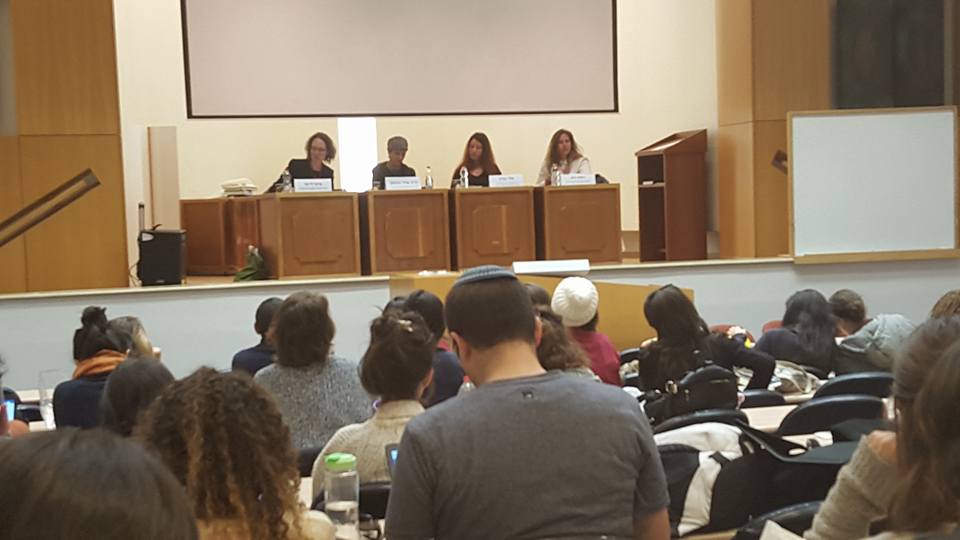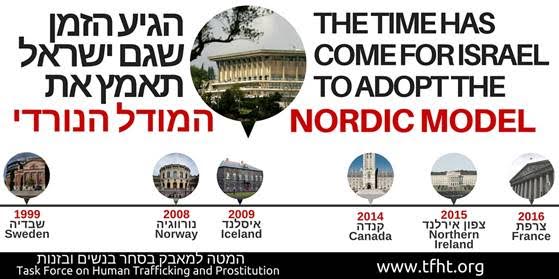It is a difficult process to move the Knesset and Israel’s political machines to recognize the urgent need to pass Nordic Model legislation, but THFT has made much progress. Our recently drafted legislation, more comprehensive than previous, leaner versions, has garnered wide support across party lines, only to be frustrated twice by the disbandment of the Knesset and new elections. After recent months of arduous meetings with MKs Shuli Moalem-Refaeli (Habayit Hayehudi) and Zehava Galon (Meretz) and others, we have now reconstituted and expanded that base of support in advance of the pending re-submission of the legislation.
We are cautiously optimistic: the bill’s cross-party sponsors are adamant in seeking the coalition Government’s approval; public awareness of the evils of trafficking and the abuses of prostitution has grown exponentially; and high-profile instances of the suffering and suicide of prostituted women have attracted much media coverage, as have the instances of the sexual abuse of women by public figures. And, as this report is being prepared, it was announced that Minister of Justice Ayelet Shaked called for the formation of a special committee to examine the possibility of making the purchase of prostitution a criminal offence.
Despite the forward motion, we remain aware of very resistant opposition to such legislation: an annual 1.2 billion NIS enterprise has well-connected attorneys; the Ministry of Justice is hesitant to add another offence to the penal code; and the constant distractions of terror attacks, Iranian threats, and the Government’s fear-mongering produce a climate less inclined to see the priority of at-risk citizens’ concerns.
Countering these challenges is the support and inspiration which comes from our donors, pro bono partners, and volunteers who join us in insisting on the betterment of the status of women and their well-being. Together our voices bellow in protest of the daily rape of thousands of prostituted and trafficked women and girls on our streets.










